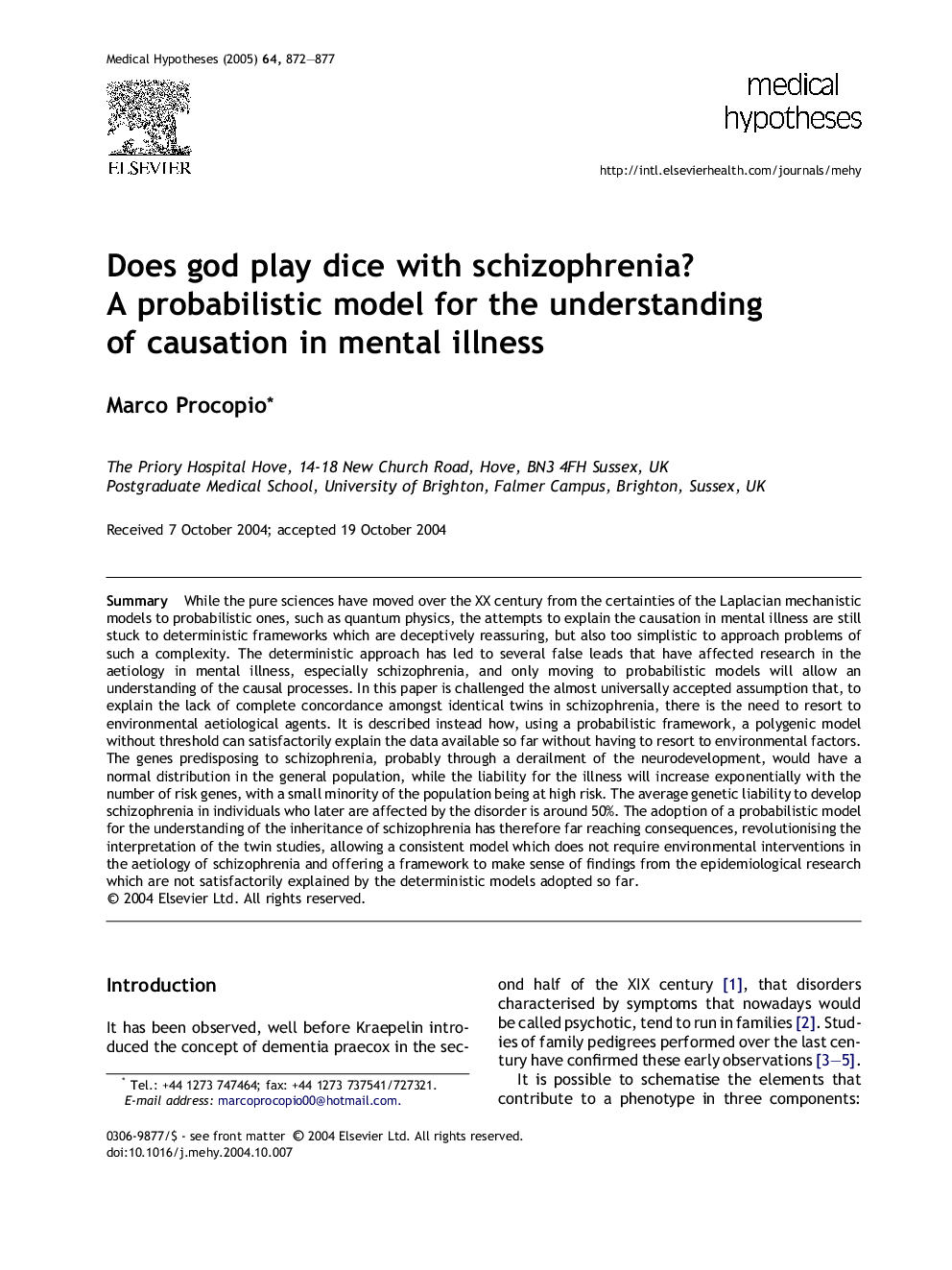| Article ID | Journal | Published Year | Pages | File Type |
|---|---|---|---|---|
| 8995811 | Medical Hypotheses | 2005 | 6 Pages |
Abstract
While the pure sciences have moved over the XX century from the certainties of the Laplacian mechanistic models to probabilistic ones, such as quantum physics, the attempts to explain the causation in mental illness are still stuck to deterministic frameworks which are deceptively reassuring, but also too simplistic to approach problems of such a complexity. The deterministic approach has led to several false leads that have affected research in the aetiology in mental illness, especially schizophrenia, and only moving to probabilistic models will allow an understanding of the causal processes. In this paper is challenged the almost universally accepted assumption that, to explain the lack of complete concordance amongst identical twins in schizophrenia, there is the need to resort to environmental aetiological agents. It is described instead how, using a probabilistic framework, a polygenic model without threshold can satisfactorily explain the data available so far without having to resort to environmental factors. The genes predisposing to schizophrenia, probably through a derailment of the neurodevelopment, would have a normal distribution in the general population, while the liability for the illness will increase exponentially with the number of risk genes, with a small minority of the population being at high risk. The average genetic liability to develop schizophrenia in individuals who later are affected by the disorder is around 50%. The adoption of a probabilistic model for the understanding of the inheritance of schizophrenia has therefore far reaching consequences, revolutionising the interpretation of the twin studies, allowing a consistent model which does not require environmental interventions in the aetiology of schizophrenia and offering a framework to make sense of findings from the epidemiological research which are not satisfactorily explained by the deterministic models adopted so far.
Related Topics
Life Sciences
Biochemistry, Genetics and Molecular Biology
Developmental Biology
Authors
Marco Procopio,
